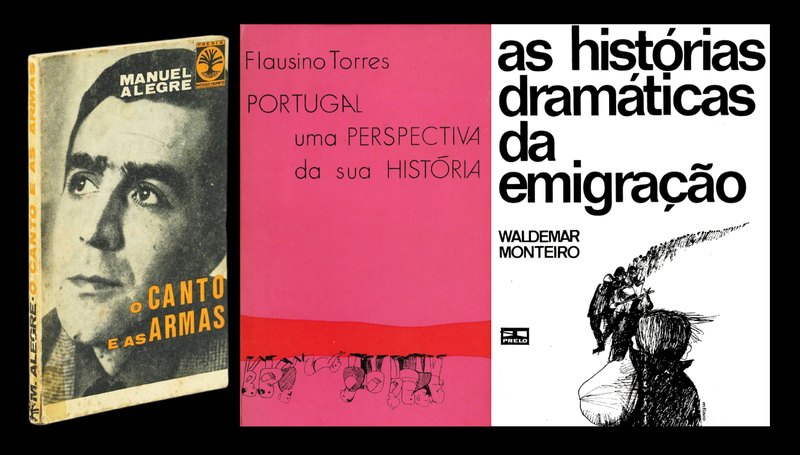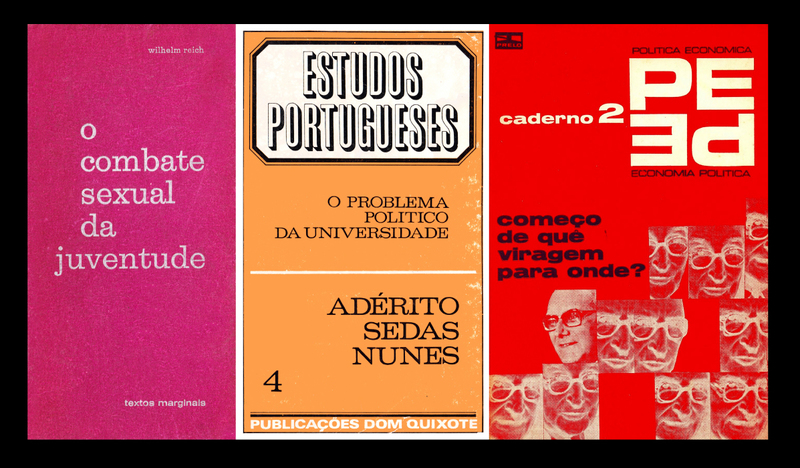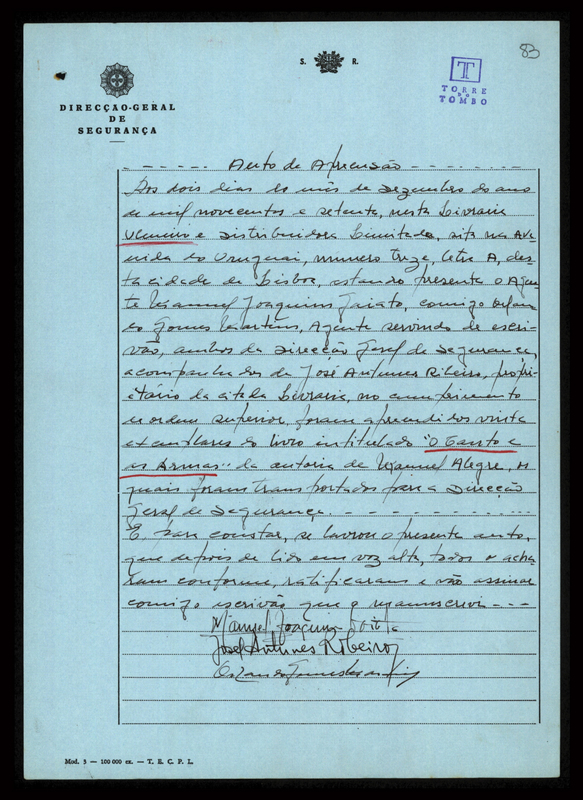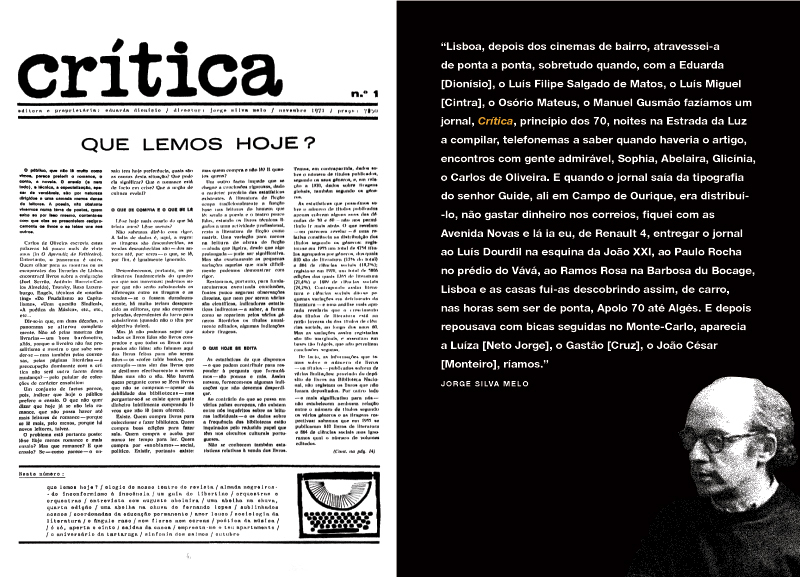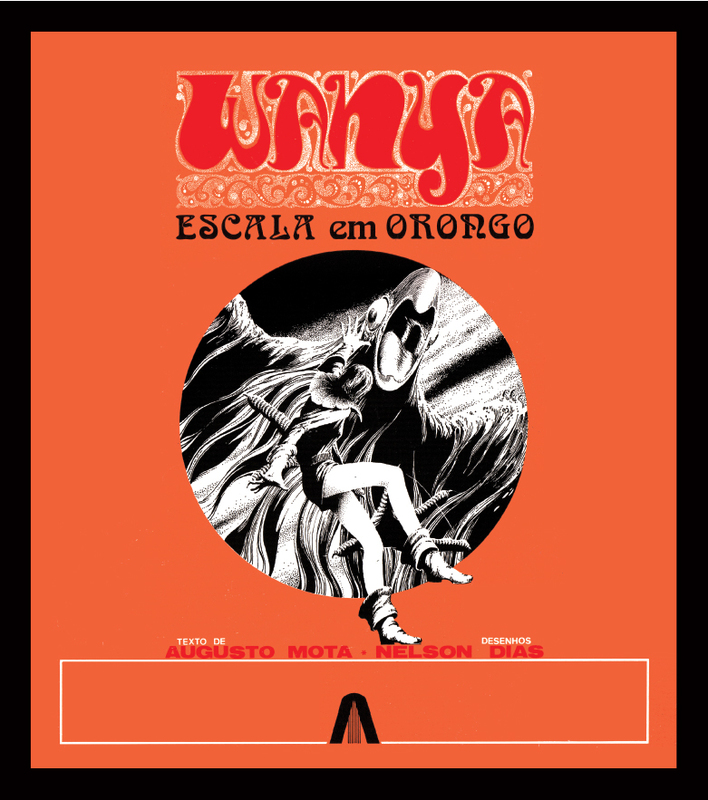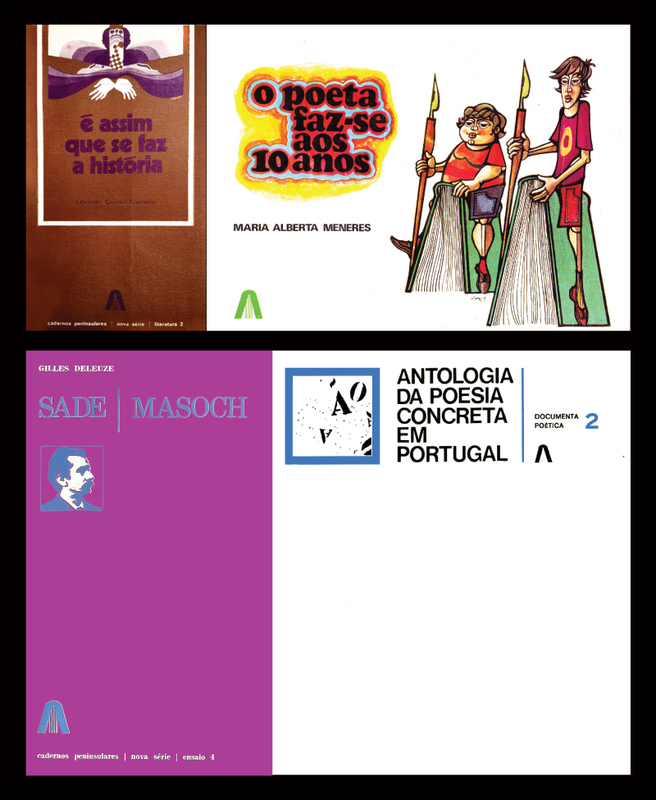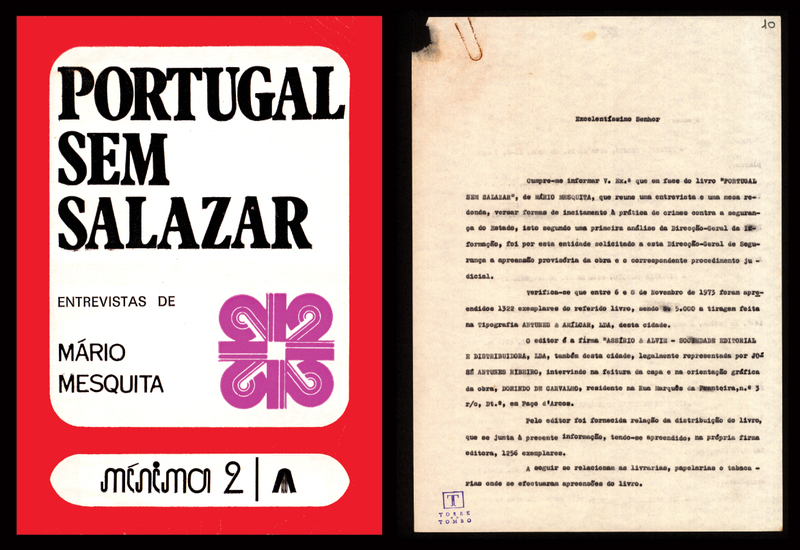3. The final fight against the dictatorship
Ulmeiro was one of the main distributors of new alternative and resistance publishers such as Afrontamento, Centelha/ Fora do Texto, Escorpião, etc. For that reason, the distributor-bookshop was one of the most targeted by political police seizures, having been the victim of more than 40 raids, at an average of more than one per month.
It distributed the cultural-civic intervention newspaper Crítica [Criticism] (1971/2, 9 ns.), created by young university students like Eduarda Dionísio, Luís Miguel Cintra and Jorge Silva Melo (these two will be at the genesis of the Teatro [Theatre] Ulmeiro collection).
In 1972, José Ribeiro joined João Carlos Alvim and Assírio Bacelar to create Assírio & Alvim, which in the beginning managed to elude the political persecution that already afflicted Ulmeiro and the like. That is why they transfer to it the Cadernos Peninsulares [Peninsular Notebooks] collection (renamed Peninsulares [Peninsulars]), together with all the distributions of Ulmeiro. They were accompanied by Dorindo de Carvalho and Manuel Rosa in the graphic arrangement and covers, Mário Reis in the administration and Carlos Caeiro as "invisible capitalist shareholder". There they release works such as the insurgent Wanya comic book and the Antologia da poesia concreta em Portugal [Anthology of the concrete poetry in Portugal], both in 1973, and many political books, with a Marxist and radical left perspective. One of them, Portugal sem Salazar [Portugal without Salazar], will give rise to outcry and further political retaliation.
It is at this stage that the civic tertulias (gatherings) appear, animated by composers like Carlos Paredes, singer-songwriters like José Afonso and Francisco Fanhais, and by intellectuals like Luiz Pacheco and Natália Correia.
This web publication had the support of CHAM (NOVA FCSH/UAc), through the strategic project sponsored by FCT (UIDB/04666/2020). This work is funded by national funds through the FCT – Fundação para a Ciência e a Tecnologia, I.P., under the Norma Transitória – DL 57/2016/CP1453/CT0062.
See next section: 4. The Ongoing Revolutionary Process (PREC), its derivatives and the post-revolution >>

